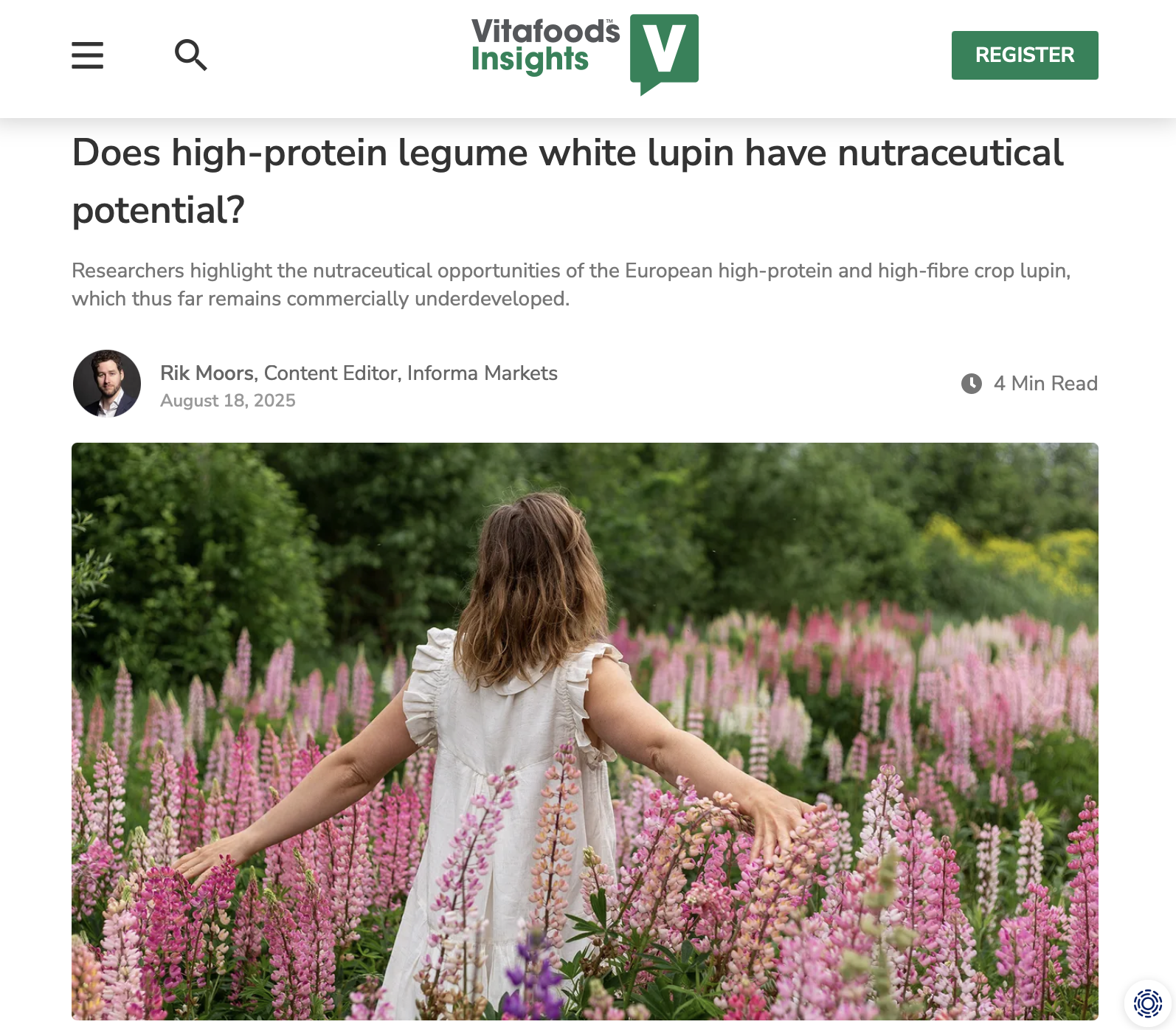
An article on white lupin and DIVINFOOD published in Vitafoods Insights
The European white lupin (Lupinus albus) is attracting growing attention from researchers and the food industry for its exceptional nutritional and agronomic potential. A recent article published in Vitafoods Insights highlights this promising crop and the work carried out within the DIVINFOOD project.
The article features insights from Luca Colombo, Secretary General of the Italian Foundation for Research in Organic and Biodynamic Agriculture (FIRAB), and Francesca Galli from the University of Pisa, who coordinate DIVINFOOD’s research on the white lupin. Their studies point to its remarkable nutritional profile, comparable to that of soybeans, with around 40% protein, high fibre content, and valuable antioxidant compounds such as carotenoids and polyphenols.
Scientific evidence links regular lupin consumption to significant health benefits, including better blood sugar regulation, lower cholesterol levels, and reduced blood pressure — effects that make it a potential ally in the prevention of major chronic diseases such as diabetes and hypertension. Its gluten-free and low-carbohydrate nature also makes it suitable for low-GI, keto, and sports nutrition products.
From an agronomic perspective, white lupin plays a strategic role in sustainable farming. It naturally fixes nitrogen in the soil, helping to reduce fertiliser use, and thrives in marginal soils, contributing to greater European protein self-sufficiency and more resilient agricultural systems.
Within DIVINFOOD, a Living Lab in Tuscany, coordinated by FIRAB and the University of Pisa, is experimenting with both traditional and advanced processing techniques. Researchers are developing high-protein snacks and testing dairy-like and fermented lupin products, while also assessing consumer acceptance through pilot e-commerce initiatives.
Despite its potential, lupin remains commercially underdeveloped in Europe, partly due to allergen labelling regulations and the need for specific detoxification processes. However, interest from researchers, industry, and consumers is growing, especially among those seeking sustainable, plant-based protein sources.
As the Vitafoods Insights article concludes, white lupin could become a key ingredient in the transition toward healthier, more sustainable food systems — combining nutritional excellence, agronomic benefits, and strong alignment with DIVINFOOD’s mission to promote cultivated biodiversity and food resilience in Europe.

Leave a Reply